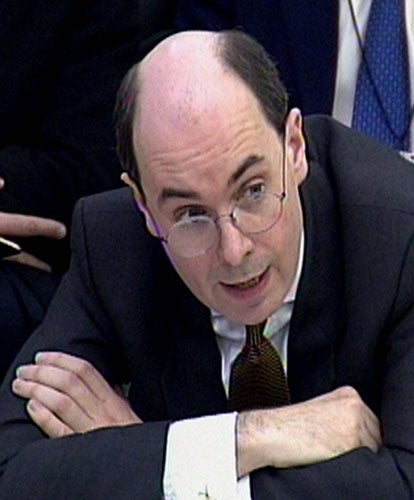Goodwin's pension could have been halved, RBS admits

Your support helps us to tell the story
From reproductive rights to climate change to Big Tech, The Independent is on the ground when the story is developing. Whether it's investigating the financials of Elon Musk's pro-Trump PAC or producing our latest documentary, 'The A Word', which shines a light on the American women fighting for reproductive rights, we know how important it is to parse out the facts from the messaging.
At such a critical moment in US history, we need reporters on the ground. Your donation allows us to keep sending journalists to speak to both sides of the story.
The Independent is trusted by Americans across the entire political spectrum. And unlike many other quality news outlets, we choose not to lock Americans out of our reporting and analysis with paywalls. We believe quality journalism should be available to everyone, paid for by those who can afford it.
Your support makes all the difference.The £700,000-a-year pension being paid to Sir Fred Goodwin, the former chief executive of Royal Bank of Scotland, could have been cut to £416,000 a year, MPs were told yesterday.
In a letter to the Commons Treasury Select Committee, RBS admitted that if Sir Fred, 50, had been dismissed, he would have been entitled to a deferred pension of £416,000 a year at the age of 60. But as he took early retirement when the bank was saved from collapse by the Government last October, RBS said he was entitled to an immediate £703,000 a year on its latest estimate – higher than the £693,000 figure which emerged last week. If RBS had gone bust, his pension could have been capped at £27,770 a year, it added.
John Kingman and Glen Moreno, the chief executive and acting chairman respectively of UKFI, which manages taxpayers' stakes in part-nationalised banks, told the committee the RBS could have decided to terminate Sir Fred's contract instead of treating him as having taken retirement at his employer's request. "Plainly the cost of that would have been a great deal less than the pension outcome that we now know followed from their decision," Mr Kingman said. "The terms on which he left could have been different and that fact was not, so far as we can establish, shared with anyone in government until 19 February."
Mr Moreno said there was a tendency for company boards to take legal advice on firing directors – which was usually that nothing could be done. But, he said: "If someone destroys the level of a long-standing institution on that scale, not through any sinister motive but just by inadequate management, there's a point at which a board has to say: 'I'm sorry, you'll have to stand down on the basis of your performance.'"
Mr Kingman said UKFI was pursuing all legal avenues in an attempt to reduce the value of Sir Fred's pension. "To the extent that any legal action derives from an analysis of the past, possibly relating to Sir Fred, possibly relating to other actors in the drama at RBS and HBOS, I would expect that to take weeks rather than days," he said. Whitehall sources said later that options included action against RBS directors and advisers.
But as the war of words between RBS and the Government intensified last night, RBS disputed Treasury claims that Sir Fred's pay-off was "discretionary" .It said: "Anyone who retires at the request of the employer is entitled to an immediate pension with no discount for early payment."
RBS insisted yesterday that the Government was told Sir Fred's pension pot would be worth up to £20m as soon as he stood down as its chief executive last October. That contradicted a statement in parliament by Lord Myners, the Treasury minister responsible for the City. He told peers on Monday that RBS told him Sir Fred's pension would be "large" but that "no sum was mentioned", that he was only advised of the sum a few days later and did not approve it.
But RBS told the committee it told Lord Myners by telephone that it estimated Sir Fred's pension would be worth between £15m and £20m. "The company has no record of whether any specific questions were raised about the pension terms by Lord Myners," RBS said.
Mr Kingman and Mr Moreno were strongly criticised by the committee chairman, John McFall, for failing to provide details of pay and bonuses at government-backed banks. Although the MPs had requested the information in advance on Friday, Mr Moreno said he did not have it to hand. Mr McFall said his committee was "appalled", adding: "I think that's scandalous, to be honest with you."
Earlier, Mr McFall played down suggestions by Harriet Harman, the Commons leader, that the Government could pass a law to deprive Sir Fred of all or part of his pension. He said there was "no role" for parliament to interfere in anyone's pension.
Adam Applegarth, the former chief executive of Northern Rock, received a £109,000 pension top-up last year to help fund his future £305,000-a-year pension, it emerged yesterday.
Join our commenting forum
Join thought-provoking conversations, follow other Independent readers and see their replies
Comments